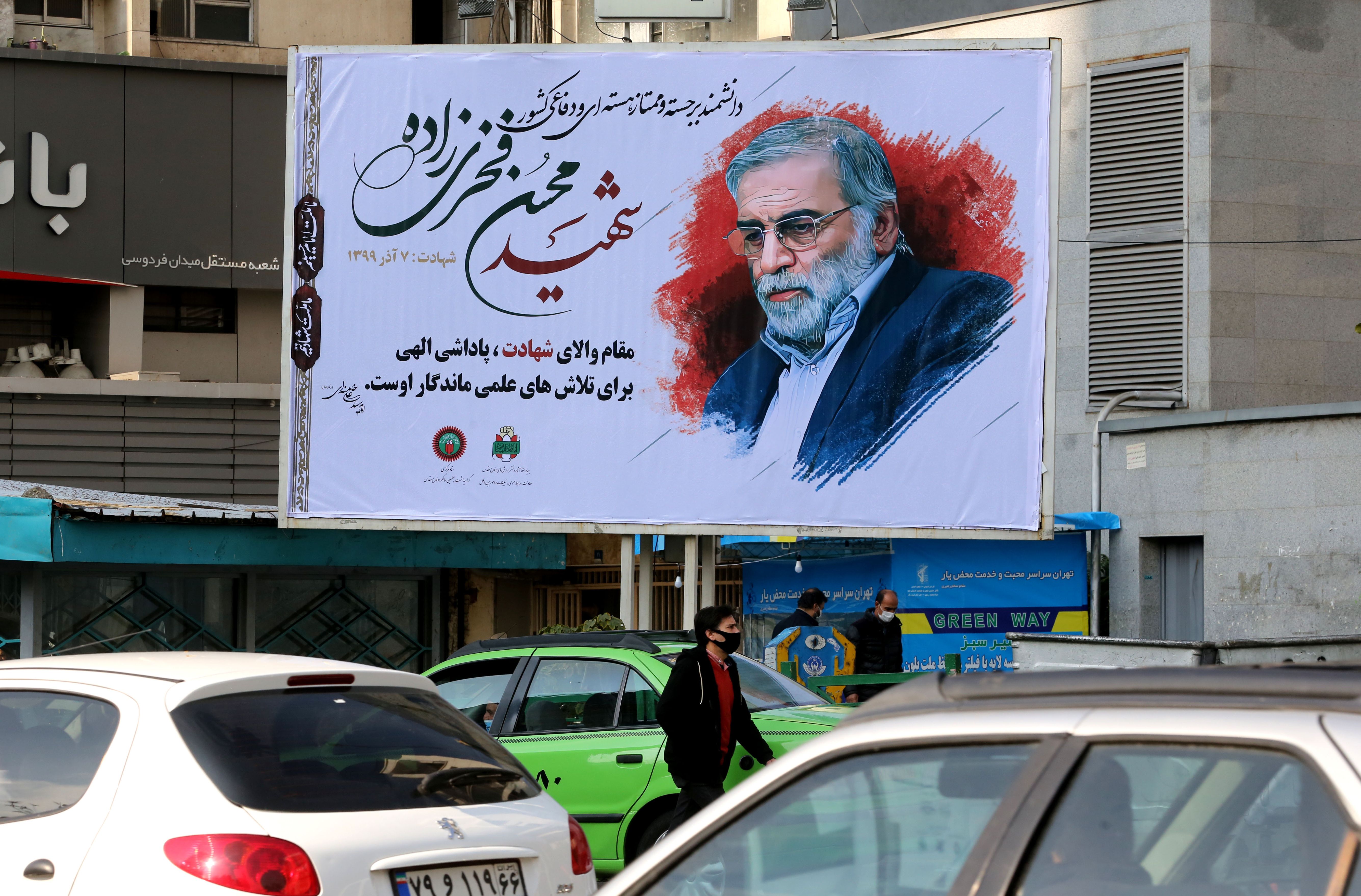How Iran’s top nuclear scientist was killed with remote-controlled machine gun
Iranian media says Mohsen Fakhrizadeh was shot by weapon mounted on car that then exploded

A free daily email with the biggest news stories of the day – and the best features from TheWeek.com
You are now subscribed
Your newsletter sign-up was successful
A remote-controlled machine gun was used to kill Iran’s leading nuclear scientist in an assassination that Tehran has blamed on Israel, according to latest reports.
Mohsen Fakhrizadeh - dubbed the “father” of Iran’s bomb programme - was travelling with his wife in a bullet-proof car, accompanied by a convoy of armoured vehicles, when they came under gunfire on Friday in the city of Absard, 50 miles east of the capital.
Accounts of the attack are conflicting, with the Daily Mail reporting that Fakhrizadeh “was shot dead in his car by 12 highly-trained assassins” after his convoy was forced to stop when a nearby parked car exploded as they approached a roundabout.
The Week
Escape your echo chamber. Get the facts behind the news, plus analysis from multiple perspectives.

Sign up for The Week's Free Newsletters
From our morning news briefing to a weekly Good News Newsletter, get the best of The Week delivered directly to your inbox.
From our morning news briefing to a weekly Good News Newsletter, get the best of The Week delivered directly to your inbox.
But Iran’s semi-official Fars News Agency is claiming that Fakhrizadeh was killed by a remote-controlled machine gun mounted on a Nissan parked about 150 metres away, after he pulled over and exited his own vehicle to investigate sounds of gunfire.
Fakhrizadeh is reported to have been “hit at least three times”, and “his bodyguard was also shot”, before the Nissan exploded, says CNN.
The killing has “has once more heightened tensions between Tehran and its foes, with Iran’s president, Hassan Rouhani, accusing Israel of acting as Washington’s ‘mercenary’” by masterminding the attack, The Guardian reports.
The assassination is widely viewed as a bid to hobble efforts by US President-elect Joe Biden to revive the 2015 Iran Nuclear Deal, “a move that Jerusalem staunchly opposes”, adds The Times of Israel.
A free daily email with the biggest news stories of the day – and the best features from TheWeek.com
Pledging revenge for the attack, Iran’s Major General Hossein Dehghan - military adviser to Supreme Leader Ayatollah Seyyed Ali Khamenei - warned on Saturday that Tehran would “descend like lightning” on “Zionists” seeking “to intensify and increase pressure on Iran to wage a full-blown war”.
Although Jerusalem has not officially taken responsibility for the assassination, an unnamed Israeli official told The New York Times yesterday that “the world should thank Israel” for getting rid of the nuclear menace posed by Fakhrizadeh, who led research for Iran’s Ministry of Defence.
His body is being interred at Tehran’s Imam Khomeini shrine today following a state funeral procession.
Kari Wilkin is The Week Digital’s global managing editor. She joined the UK site as production editor in 2017, after moving across from The Week magazine. Her career as a journalist began as a sub-editor at newspapers including The Sun, Metro, the Daily Star and News of the World, followed by stints at Elle and Asda Magazine. She also helped to launch the UK edition of Women’s Health magazine, as chief sub-editor with a sideline in writing; has penned travel and lifestyle articles for titles including The Telegraph and The Sun; and is a contributor on “The Week Unwrapped” podcast.